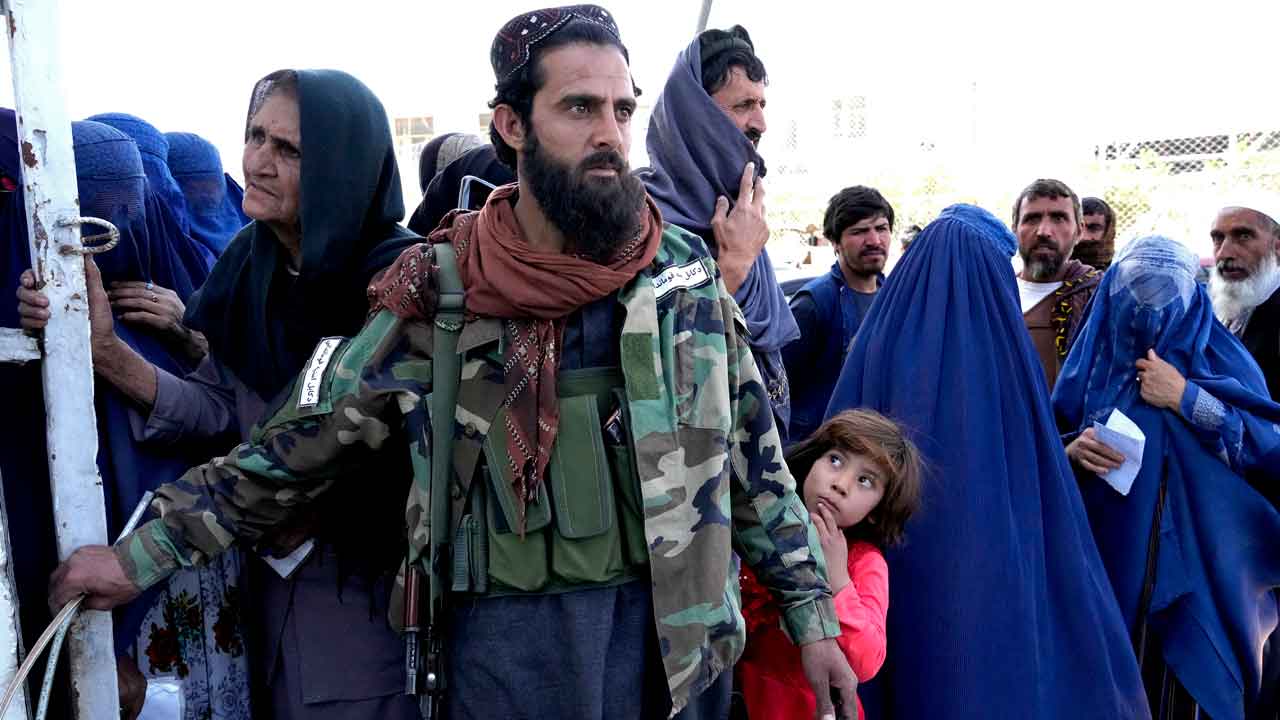The Taliban’s treatment of women and girls in afghanistan could be classified as a crime against humanity and should be investigated and prosecuted under international law, a UN panel of experts said on Friday.
The Taliban immediately rejected the accusations.
The statement by the UN-appointed experts followed confirmation by the Taliban that three women were among 12 people beaten on Wednesday in front of hundreds of spectators at a provincial sports stadium. This marked the Taliban’s resumption of the brutal form of punishment that had been a hallmark of their rule in the 1990s.
And on November 11, 10 men and nine women were flogged 39 times in the presence of elders, scholars and residents of the city’s main mosque after Friday prayers in Taloqan, in northeastern Takhar province. They were accused of treason, theft and running away from home.
UN experts said the Taliban’s latest actions against women and girls have exacerbated existing rights abuses — already “the most draconian in the world” — and may amount to gender-based persecution, which is a crime against humanity.
The Taliban took over Afghanistan in August 2021, when US and NATO forces were in the final weeks of their withdrawal from the country after 20 years of war. Although initially promising more moderate rule and allowing the rights of women and minorities, they have restricted rights and freedoms and widely applied their harsh interpretation of Islamic law, or sharia.
They banned girls from middle and high school, restricted women from employment, and ordered them to wear head-to-toe clothing in public. Women are also prohibited from visiting parks, gyms and fairs.
A Taliban fighter stands guard in Kabul, Afghanistan, April 25, 2022. A UN committee of experts has called for an investigation into the treatment of women in Afghanistan.
(AP Photo/Ebrahim Noroozi, File)
Public floggings, as well as public executions and stonings for alleged crimes, were common in Afghanistan during the first period of Taliban rule, from 1996 to 2001, when they were ousted by the US-led invasion after the 9/11 terrorist attacks. The Taliban harbored al-Qaeda and its leader Osama bin Laden.
US-BACKED FIGHTERS SAVE TENS OF THOUSANDS OF WOMEN AND CHILDREN IN RAID ON ISIL AL-HALL CAMP
The experts’ statement did not specifically mention cases of public flogging, but said the Taliban beat men who accompanied women wearing colored clothes or without covering their faces.
“We are deeply concerned that such actions aim to compel men and boys to punish women and girls who resist the Taliban’s erasure, further disenfranchising them and normalizing violence against them,” it said.
He called on the Taliban to restore the rights and freedoms of Afghan women, release activists from custody and restore access to schools and public places.
The panel of experts appointed by the UN Human Rights Council included Richard Bennett, Special Rapporteur on the situation of human rights in Afghanistan, and Farida Shahid, Special Rapporteur on the right to education.
The Taliban-appointed spokesman for the Ministry of Foreign Affairs, Abdul Qahar Balkhi, rejected the experts’ statement and opened the UN for sanctions against the former insurgents who now rule Afghanistan.
Balkhi, in a message to Associated Presslisted what he said amounted to war crimes and crimes against humanity by the world body, including “the current collective punishment of innocent Afghans by the UN sanctions regime, all in the name of women’s rights and equality.”
Sanctions against Taliban officials and a freeze on billions in foreign currency reserves have limited access to global institutions and the foreign money that supported Afghanistan’s aid-dependent economy until the withdrawal of US and NATO forces.
CLICK HERE TO GET THE FOX NEWS PROGRAM
No country in the world has recognized Islamic Emirate Afghanistan, as the Taliban call their administration, leaving them in international and financial isolation.
The International Committee of the Red Cross said on Thursday that there was a spike in childhood pneumonia and malnutrition, poverty levels were higher than in previous years, as humanitarian conditions plummeted and the country braced for a second winter under Taliban rule.
